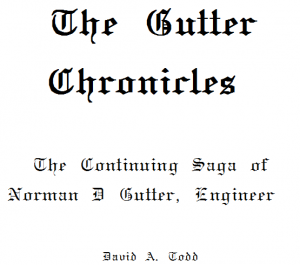As I reported on Friday, I had hoped to write 5,000 words this weekend just passed. My wife left for Oklahoma City on Friday, leaving me a quiet house and not too much to do. Friday night I arrived home late after eating supper with my mother-in-law. There was still plenty of evening left, and I should have gotten a lot done. Alas, I created folders and files for my three potential new works, and wrote one scene in one of them. Tiredness set it, and I quit for the evening.
Saturday found me in my normal routine. I read in the Bible first thing, then ate a small breakfast, then read some in my current reading book. Then I went outside to do chores, which that day was cutting down a dead tree (only 5″ caliper) and cutting it into firewood length. It was almost too much for this old man, but I got it done. Back inside the house I did some cleaning
That tuckered me out enough that I fell asleep in my reading chair after lunch. I don’t think I slept long: about two touchdowns’ worth in whatever game I had on. Still, I was down in The Dungeon and at my computer by 3:00 p.m. Plenty of time to get a couple of thousand words written.
Alas, I only wrote around 900, taking Headshots up to 1240. I couldn’t concentrate, and kept shelling out to play mindless computer games. I began to write something, wrote ten words in a new scene, and couldn’t think of what to write next. Or, I think more accurately, didn’t want to apply my mind to the scene. So I played games for a half hour, then came back to the scene and wrote it.
Over and over that repeated Saturday, and actually Sunday. By the time I quit at 10:30 p.m. on Sunday I had around 1,430 words written. Well, more than that, I suppose, if you include the two blog posts I wrote for An Arrow Through The Air, my other blog, one which I posted yesterday and one which I scheduled to post tomorrow. That’s another 600 words I guess, bring the total for the three days to 2,000. That’s not bad, but it’s a far cry from the 5,000 I was hoping for.
As I said in a previous post, I’m not sure which novel to work on next, and my plan is to write 1,000 words in each of the three and see which one seems best to me to continue in. I did that in only one, so two to go. Tonight, I’ll be home at a good time. I’ll have to cook supper (stir fry, I think), and do some significant cleaning in the kitchen. That should put me in The Dungeon around 8:00 p.m., giving me time to write the thousand words. I’m thinking of doing so in China Tour, though by the time I get home I may change my mind and go with Preserve The Revelation.
I sure wish I felt some direction in all of this. Possibly the difficulty I had applying myself to Headshots is a form of negative direction. If so, that’s a start.


